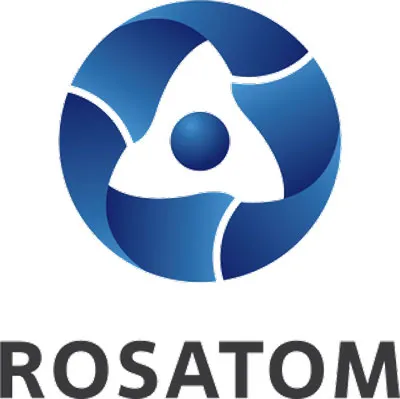Tier-II and -III cities will dictate the growth rate of the real-estate sector
01 Jan 2012
8 Min Read
CW Staff
SK Sayal, Director & CEO, Alpha G: Corp
Here's a company betting on life beyond the metros. With projects spread across India encompassing more than 40 million sq ft, including a variety of tier-II and -III cities, Alpha G: Corp has its eye - and its name - on the skylines of Ahmedabad, Amritsar, Delhi and the NCR, Dehradun, Fatehabad, Gurgaon, Goa, Gwalior, Karnal, Patiala, Jalandhar, Jaipur, Ropar, Udaipur and several other cities in Gujarat, Punjab, Rajasthan, Madhya Pradesh and Uttaranchal. Its efforts have not gone unnoticed - the group has won a host of awards this year, further cementing its reputation. Director and CEO SK Sayal tells us more about the company's milestones and shares his take on the industry with Shriyal Sethumadhavan
You have won a host of accolades this year. Tell us more about the milestones.
It has been a landmark year with Alpha G: Corp winning over 31 awards in various categories. The success of each project has marked a major milestone. One landmark was the launch of Gurgaon One in Sector 22 in Gurgaon back in 2004, despite analysts writing it off for its location. Another high point was when Morgan Stanley's Private Equity invested Rs 300 crore in the company in 2006. Then, along with residential, township and office space verticals, we diversified into the retail segment. The overall recognition received has only motivated us to continue providing the best services to our patrons.
What were your expansion strategies?
The company's genesis lay in providing real-estate asset-management (REAM) services. Initially, the focus was on adding value to ongoing projects, albeit at the cost of short-term growth. Two of our Gurgaon projects, Gurgaon One in Sector 22 and Golf View Corporate Towers in Sector 42, were developed on the REAM model. Investing time to create valuable assets against launching multiple projects with limited deliverability has led to our growth over these years. Our belief in the latent potential of tier-II and -III cities like Karnal, Amritsar and Ahmedabad as future centres of growth has also been a reason for our successful expansion. Also, during cyclical movements such as a slowdown, we have focused on developing infrastructure in existing properties, which has eventually led to a healthy turnaround.
Can you elaborate on the REAM model?
It is a format for comprehensive development of a real-estate project from conceptualisation to completion. In line with international standards of transparency, this model seeks to create a win-win equation between the landowner, developer and client. Our responsibilities span from sourcing the land to developing the project to its final sale/lease and the benefits of
compensation thereof. While the asset manager directly manages and develops the property, the money received from clients is mandatorily transferred to an escrow account and used only for developing a particular project.
How do you view the real-estate draft regulatory bill prepared by the government?
In its current form, the bill is biased against developers and does not account for the view of all stakeholders effectively. We need regulatory reforms that encourage transparency and credibility to gain the confidence of investors. Also, the government must consider eliminating bureaucratic bottlenecks and red tape that add to project expense and dent the profitability levels of developers. For instance, one futile exercise that developers need to undergo is to seek environmental clearances for a project envisaged on a tract defined as 'open to development' under the city's existing master plan.
You are developing projects with a value of over Rs 4,000 crore. Please share some details with us.
We are currently developing Gurgaon One Sector 84, a premium residential project spread over 12.5 acre, in what has been termed as New Gurgaon. The project's USP lies in its location - its proximity to the upcoming integrated transport hub slated to be the world's widest expressway connecting New Gurgaon to Delhi's international and domestic airport terminals. Also, we are developing phase II of Alpha International City - our flagship township - in Karnal. Strategically located, the development speaks for itself with wide, well-planned and pedestrian-friendly roads, multiple community parks and high quality infrastructure. Also, a similar international city is being developed in Fatehabad on 51.74 acre and in Amritsar on 300 acre.
Further, we have diversified into the retail segment with AlphaOne, spread over 5 lakh sq ft. Operating on the minimum guarantee or revenue sharing model, the mall is one of its kind in Amritsar. Similarly, another project was launched in Ahmedabad in October 2011, offering Gujarat the largest shopping and entertainment destination.
What are your views on the Indian retail industry's growth over the past decade?
While the sector has grown beyond expectations and the potential it offers is enormous, large-format shopping malls and entertainment destinations have been limited to big cities. Alpha G: Corp has been one of the few companies to identify the yawning gap between the retail avenues available in metros and tier-II and -III cities. We have not just developed the largest mall in Punjab and Gujarat but have also delivered more than 12 lakh sq ft of retail space in Ahmedabad and Amritsar - cities that offered potential in terms of favourable demographic and psychographic profile - along with other cities like Meerut and Jaipur.
Alpha G: Corp is a 51 per cent FDI-funded company. According to you, how will the FDI retail policy influence retail development in India?
We believe the opinion of certain quarters that FDI will negatively impact the kirana stores, is mythical. The policy would lead to healthy and competent pricing policies and the best of product offerings and choices for the average Indian consumer. Also, the development of retail spaces will give an additional boost to the real-estate sector and subsequently the Indian economy.
What is the impact of rising inflation and interest rates on rental as well as owned space?
Rising and uncontrolled inflation in retail dents profitability for developers as there is no way it can be forecasted. This especially refers to developers operating malls on the revenue sharing model. In the residential sector, rise in interest rates has demotivated investors to force a correction in the market.
How do you view the prospects of real-estate development in tier-II and -III cities?
The aspiration quotient of an average Indian includes world-class living spaces and commercial developments. This offers tremendous scope to real-estate players to offer them the best infrastructure. Given a buoyant and steady economy, tier-II and -III cities are growing immensely and will definitely dictate the growth rate of the real-estate sector. They are developing for different reasons; in cities like Karnal and Fatehabad, a strong agro-economy and strategic location on a national highway are responsible for growth, while Amritsar and Ludhiana are growing owing to NRI investments, industrial growth and migration of skilled labour. We are amongst the first few developers with projects in tier-II cities like Karnal and Fatehabad, and these have received tremendous buyer response.
Other than northern India, do you plan to expand to other zones?
Expansion to other regions is definitely on our radar. As mentioned earlier, we recently launched AlphaOne in Ahmedabad. Another project christened Pearl Island Resort - an ecological resort - is in the pipeline for Goa. Our wholly-owned subsidiary, Alpha Management Services Pvt Ltd, is currently developing projects in the hospitality sector. However, the pace and frequency of our expansion plans will be governed by various factors like demand and government approvals.
How do you estimate the Indian real-estate industry's growth in 2012, and what impact will this have on your growth graph?
The investor outlook for the Indian real-estate market, albeit a bit cautious, remains positive. Again, transparency and an impeccable record on the delivery front are expected to be significant in strengthening investor confidence. Despite the global slowdown in economies, the industry remains attractive for both the global and local investor. Alpha G: Corp stands to benefit in such an environment as our transparent practices backed by an expertise-driven business model and 100 per cent delivered projects may enjoy more traction within the industry.
Finally, how does Alpha G: Corp contribute to the green building movement in India?
Green building has outlived its potency as merely being part of a branding exercise for developers. At Alpha G: Corp, we believe that a social initiative implies action distanced from the cause. The green concept is only possible if we reduce our carbon footprint in every possible way, and all our developments are built around this principle.
Company details:
Year of Establishment: 2003
No. of employees: 127
Top management: Col RS (Pickles) Sodhi, Managing Director; SK Sayal, Director and Chief Executive Officer
Centre of operation: National Capital Region (Sector 42, Gurgaon)
Ongoing projects:
Gurgaon One, Sector 84; Alpha International City, Fatehabad; Alpha International City, Karnal; Alpha International City, Amritsar; AlphaOne, Amritsar; AlphaOne, Ahmedabad
Upcoming projects:
Industrial township/park in Amritsar, mega residential township in Ludhiana, retail development in Meerut and Amritsar, residential developments in Jaipur, Goa
Turnover:
Rs 700 crore (approx)
Know of a builder who made it big in the industry? Write in at feedback@ASAPPmedia.com



















